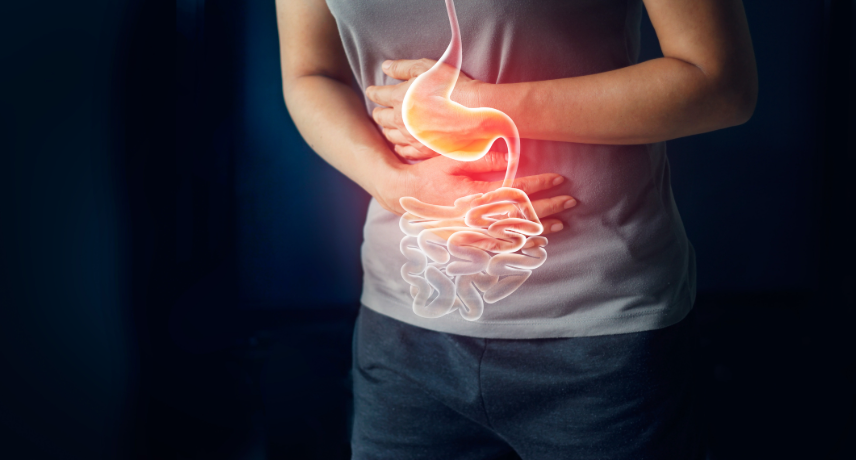3rd April, 2025

A healthy digestive system is essential for maintaining overall health, yet many overlook gastrointestinal issues. These problems often signal underlying conditions that demand specialised care. Gastroenterology specialists, who are experts in digestive health, play a crucial role in diagnosing and treating these conditions. Recognising the signs that require medical attention ensures timely intervention and reduces the risk of complications. Here are some key symptoms that indicate the need for consulting a gastroenterologist.
Occasional abdominal discomfort is common, but persistent or severe pain requires attention. Such pain can result from various causes, ranging from minor indigestion to serious conditions such as ulcers, gallstones or pancreatitis. Chronic abdominal pain may also indicate inflammatory bowel diseases (IBD) such as Crohn's disease or ulcerative colitis. Early diagnosis and treatment by a gastroenterologist are crucial to managing these conditions and preventing further complications.
Experiencing heartburn occasionally, especially after a heavy meal, is normal. However, frequent episodes of burning sensations in the chest or throat could point to gastroesophageal reflux disease (GERD). If left untreated, GERD can lead to serious complications such as esophageal ulcers or strictures. A gastroenterologist can develop an effective treatment plan, including lifestyle modifications and medications, to manage symptoms and prevent long-term damage.
Difficulty swallowing, known as dysphagia, can be unsettling. This symptom may indicate esophageal conditions such as narrowing, motility disorders, or other structural issues. A gastroenterologist may recommend diagnostic procedures, including an endoscopy, esophageal manometry, pH monitoring to identify the root cause and determine appropriate treatment options.
Losing weight unexpectedly, without changes to diet or activity levels, can be a red flag for gastrointestinal problems. Conditions such as coeliac disease, chronic infections, or even gastrointestinal cancers can cause unexplained weight loss. Consulting a gastroenterologist early can help in diagnosing and addressing the underlying issue promptly.
Significant alterations in bowel movements, such as persistent diarrhoea, constipation, or the presence of blood in the stool, should never be ignored. These symptoms may stem from conditions such as irritable bowel syndrome (IBS), infections, inflammatory bowel disease (IBD) or even colorectal cancer. Gastroenterologists can evaluate these changes and provide targeted treatment plans. Patients may require a colonoscopy, enteroscopy, capsule endoscopy.
Occasional bloating or gas is normal, especially after having certain foods. However, persistent bloating or excessive gas may indicate underlying issues such as food intolerances, gut bacterial imbalances, or inflammatory bowel disease (IBD). It may be assessed by a hydrogen breath test. A gastroenterologist can identify the cause and recommend dietary changes or treatments to alleviate symptoms.
The presence of blood in vomit or stool is a warning sign that requires immediate medical attention. Gastrointestinal bleeding can result from ulcers, liver diseases, IBD, hemorrhoids, or more severe conditions such as colorectal cancer in these cases a patient may require Angiodysplasia, upper gastrointestinal series (UGI), CT angiography, capsule endoscopy, etc. Gastroenterology specialists can identify the cause and provide appropriate interventions.
Explore our Department of Gastroenterology & Hepatology - the largest teaching unit among private hospitals in Eastern India. The centre offers comprehensive and integrated medical and surgical gastroenterology services. Our team includes nationally and internationally renowned medical and surgical gastroenterologists alongside postgraduate trainee doctors. Featuring three state-of-the-art endoscopy suites, the facility regularly conducts routine and advanced endoscopic procedures.
Services include GI endoscopy and colonoscopy, ERCP with stone extraction or stenting, capsule endoscopy, Fibroscan and ARFI, double balloon enteroscopy, and endoscopic ultrasound. Advanced treatments include embolization for GI bleeds, radiofrequency ablation and TRACE for liver tumors, esophageal cancer metal stenting, and high-resolution esophageal and anorectal manometry.
Additional diagnostic and therapeutic options feature anorectal biofeedback, 24-hour pH analysis, colonic transit time studies, electrogastrography, glucose hydrogen breath tests, and EUS for diagnostic and therapeutic purposes.